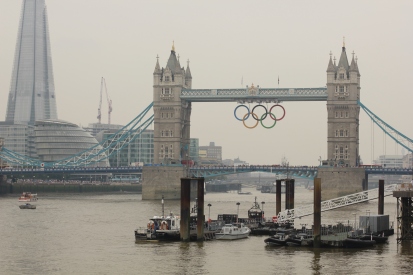It’s that New Year thing. You know, when you stand watching the sun set over the last year and simultaneously catch it beginning to rise over the new year and find yourself reconsidering what this present moment means in the light of them both. The chiming bells of midnight into the next season bring out this kind of reflection naturally, but for me this is not the only reason to be seeing double in the rosy dawn of 2013.
Just over seven years ago I stepped out on my eastwards adventure from the west of Britain, and arrived here in Russia expecting only that it would probably be cold. I sometimes hardly believe I am still here: still amazed, sometimes appalled, at times enchanted. Friends from England have been staying with us here over New Year, and seeing through their fresh eyes has reminded me of cultural differences that I have become acclimatised to over time. Living a bicultural life is like having two heads; one which sees and thinks through the culture and language you were born to, and another which has to see differently, and unconsciously adopts frames of reference from a new climate.
There are many places in Moscow where you can spot this image; that of a creature with two heads, its eyes facing in opposite directions. The double-headed eagle is all over the city, on police insignia and on buildings bearing Russia’s official coat of arms: in stone, in metal and in peeling paint. Originally a symbol of imperialistic power, it passed from Byzantine heritage to Russia in the 15th century, and signified the empire’s domination over East and West. Destroyed by Communism, the eagle with its two heads and three crowns was brought back to life again by President Boris Yeltsin to replace the hammer and sickle as the state symbol after the Soviet collapse. If one face is peering back into the past, gazing nostalgically at the power and authority of the likes of Peter the Great, then what does the other face see? Whatever the politics of this image of a state with two heads may present, the split personality of Russian culture is evident in so many little everyday ways; suspended somewhere between tradition and trash.
Of course we take our guests to Red Square. I had forgotten that the skating rink would be in place, cluttering up the classic view of the square through the archway of Resurrection Gate. Complete with turrets and little pointy red flags, the rink offers almost comical competition to the famous, curling, magnificent spires of St Basil’s Cathedral and the brightly lit facade of the elegant department store on the east side of the square. Even Lenin’s solemn and imposing mausoleum is currently concealed beneath a giant white balloon while reconstruction and repairs can take place. It’s a different face of the city than the one I’m used to seeing.
From the church on the corner of the square, tradition continues to sing out: the voices of the priest, cantor and choir curl up into the chill afternoon air in impossibly beautiful harmony. By the time we have taken a few steps across the square, these sounds have merged horribly with brazen holiday tunes, most of them from abroad, the cheap rhymes and Christmas cheer jingling out defiantly in English. From liturgical verse to ‘Santa Baby!’ in just a few, crisp steps. The paintings of cute mice, fluffy bunnies and skating santas follow one another around the gaudy hoardings of the skating rink and I wonder if Lenin is turning in his snow-white glass coffin across the square, or merely lying silently beneath his new shroud, waiting for whatever changes this new season will bring.
Whatever changes the New Year brings for you, may you be ready – standing firm and centred. May you imagine (just for a moment) that you can have two heads: one looking back to know where you are from and what you have learned, and the other facing forward, to know where you are going and who you will become.
Happy New Year!


